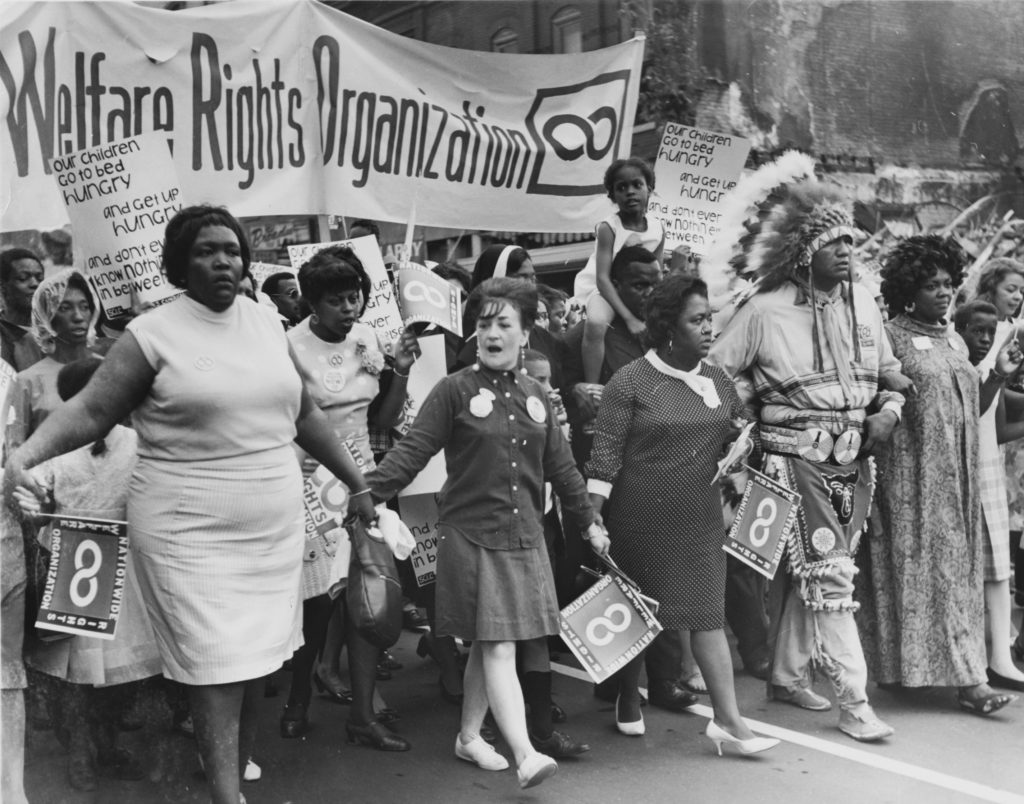Black Women’s Efforts to Combat Food Insecurity

Last month, students at Spelman and Morehouse Colleges ended their two-week hunger strike designed to raise awareness about food insecurity on their college campuses. The group, which is part of the National Action Network Spelhouse Collegiate chapter, sought to bring attention to the fact that many of their fellow students do not have access to ample nutritious food because of their inability to afford a meal plan. Like many other college campuses, however, the schools waste food due to the fact that not all students use their allotted number of meals every week. Led by Spelman College juniors Lillian Thomas and Mary-Pat Hector, a group of approximately 25 students subsisted on water and vitamins in order to compel both institutions to adopt a program through which students could access unclaimed meal plan meals. Their successful strike is part of a longer tradition of Black organizers’ efforts to address food insecurity that includes other community-based initiatives like Fannie Lou Hamer’s Freedom Farm.
Most know Hamer as a grassroots political activist who transformed voting rights and Black political representation in Mississippi in the 1960s. However, Hamer was more than simply a voting rights advocate, she also articulated and enacted an expansive understanding of Black empowerment that included labor unions and food insecurity organizing. As she explained in a 1971 speech, she believed that if “survival [was] the name of the game” then African Americans must work to “see ways and means of channeling discontentment into creative and progressive change.” Speaking in the midst of a changing political scene that included the widespread adoption of Black Power ideals like self-determination and self-sufficiency, Hamer argued that the “key to real [political] progress…must begin at the local, county, and state levels.”
In 1969, she channeled this grassroots political ethos into addressing food insecurity through the Freedom Farm. With a $10,000 donation from a Wisconsin-based non-profit group, Measure for Measure, Hamer secured 40 acres of farmland in the Mississippi Delta to address the extreme poverty and hunger in Sunflower county. The activist began the project with a “pig bank” of 50 pigs for communal use. Any family could receive a hog and tend to it until it produced baby pigs. They would then donate the litters to other families in need. By May 1973, close to 900 families had benefited from the program.
Hamer viewed food access as the cornerstone of local Black self-sufficiency and self-determination. Building on the success of the pig bank, Freedom Farm leaders increased their food sourcing efforts to crop and cotton production. Researchers estimate that more than 250 local families benefited from the crops produced. With the money earned from the dollar per family Farm membership and food sales, the co-operative expanded to include housing and educational grants. In interviews, Hamer explained that after developing a basic food access program, she and other Farm members decided to organize everyone who “lived in a shack…and teach them how to take advantage of low cost FHA and farm mortgages.” This would help the local community obtain land on which to grow their own food. Hamer and her fellow organizers also used the food co-operative to advance Black education. The Freedom Farm provided grants to local students to complete their education. By March 1973, they had supported at least 25 students in their efforts to receive a college degree or vocational training.

Hamer stated that the goal of the Freedom Farm was to “develop a Black controlled institution that would have its strengths in the land.” As her biographer Chana Kai Lee notes, the Freedom Farm was unique in that it did not pool land already held by Blacks but rather started from scratch by obtaining land for the expressed purposes of Black communal self-sufficiency. Hamer made sure that the Farm avoided relying on federal funds to keep it running. This ensured that it would stay Black controlled and not be susceptible to the white power structure. It also laid the groundwork for long-term Black economic autonomy.
Both efforts to combat food insecurity were successful. Spelman and Morehouse students were able to get both institutions to commit “to 14,000 meals each year for students who face food insecurity on campus” as well as promise to develop an institutional plan to address this issue. The Freedom Farm was a site of food and housing support until 1976. Hamer’s Farm fed, housed, and helped educate thousands of Black Mississippians. It also provided a model of how to use food sourcing as a way to address hunger and rally communities around a self-reliant liberatory agenda.
The Freedom Farm and the recent collegiate hunger strikes showcase Black women activists’ ongoing efforts to put access to food and hunger at the epicenter of social justice struggles. These activists mobilized against food insecurity not only because of the lack of food access in their communities but also because of the ideological and political implications of Black hunger. In both instances, these activists were asserting their belief in access to food as a basic human right, the importance of the Black body as a site of nourishment, and the centrality of community-sourced solutions–whether through farms or meal plans–as a form of self-sufficiency and social justice. As Hector put it, “We cannot live lives as agents of change while we idly stand by as our peers go without food.” Often overlooked, the fight for food access was and remains a cornerstone of Black freedom struggles throughout the twentieth century. Hamer, Hector, and others offer us a model of how to practice communal self-reliance and show us how the literal nourishment of the Black community can be a site of ideological and social change.
Copyright © AAIHS. May not be reprinted without permission.